
With less than 100 days until the 2024 presidential election, many voters might still be deciding which candidate best fits their beliefs.
Vice President Kamala Harris, 59, is the presumptive nominee for the Democratic party after President Joe Biden ended his reelection bid. Donald Trump, 78, will be running for his second term, after losing to Biden in 2020.
Before you cast your ballot on Nov. 5, learn more about the candidates’ stances on Jewish issues.
Antisemitism
Both Harris — whose husband Doug Emhoff is Jewish — and Trump have faced criticism for not condemning antisemitism strongly enough within their respective parties.
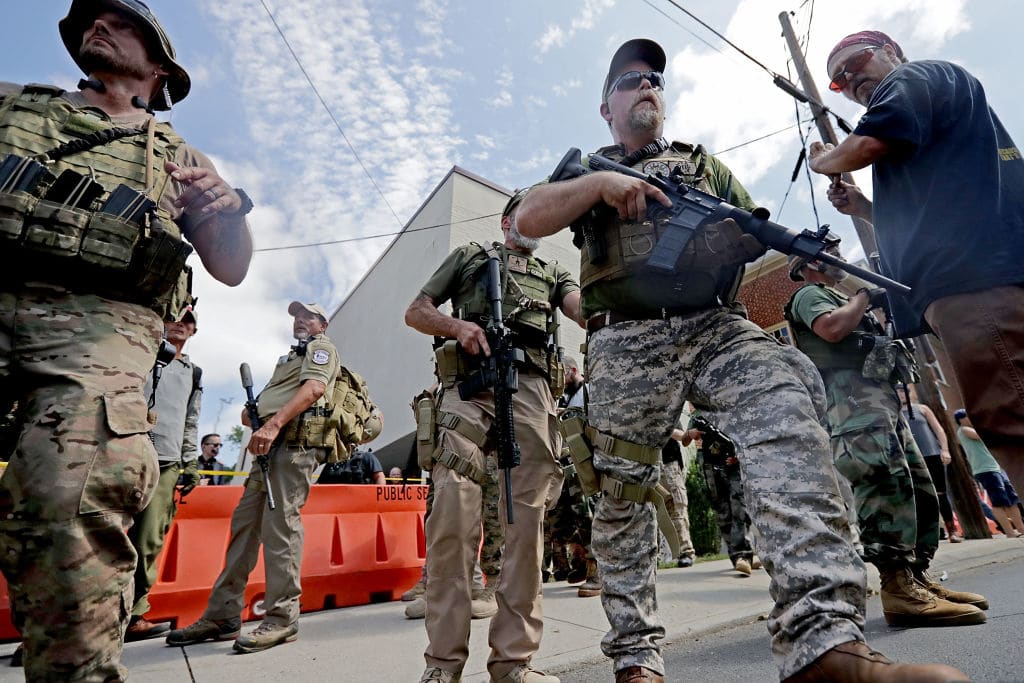
Critics blasted Trump for inviting right-wing commentator-turned-antisemitic conspiracy theorist Candace Owens to headline a rally and for fraternizing with neo-Nazis and Holocaust deniers like Nick Fuentes and Kanye West. In 2017, Trump refused to disavow a white nationalist march in Charlottesville, VA in which antisemites screamed “Jews will not replace us,” claiming there “were very fine people, on both sides.”
Jewish activists and the GOP previously ripped Harris for not being a staunch enough supporter of Israel. They also have said that antisemitism in far-left spaces is often masked as pro-Palestinian activism and Harris has not done enough to address this.
Both candidates have previously spoken out against the dangers of antisemitism.
Harris expressed that she has been horrified by the spike in antisemitism saying in an interview,
“What we’ve now seen since Oct. 7, we’re seeing it only growing, and I’m concerned deeply about it.”
In an interview this afternoon, Vice President Kamala Harris on anti-Semitism as Columbia University protests continue: "I am very concerned about it … frankly over what we've now seen since Oct. 7, we're seeing it only growing…"
— Matt Smith (@mattsmith_news) April 23, 2024
MORE SUN ON UPFRONT… pic.twitter.com/9rwy0nlWjB
After Israeli Prime Minister Benjamin Netanyahu spoke to Congress and many student protesters vandalized areas around the Capitol and the burning of U.S. flags, Harris slammed activists’ “hate-fueled rhetoric” as “unpatriotic.”
“I condemn any individuals associating with the brutal terrorist organization Hamas, which has vowed to annihilate the State of Israel and kill Jews. Pro-Hamas graffiti and rhetoric is abhorrent and we must not tolerate it in our nation,” she wrote.
“I support the right to peacefully protest, but let’s be clear: Antisemitism, hate and violence of any kind have no place in our nation.”
Harris, alongside Biden, issued the first U.S. national strategy to combat antisemitism in May 2023, which outlined goals for education on antisemitism, and increased security in Jewish communities.
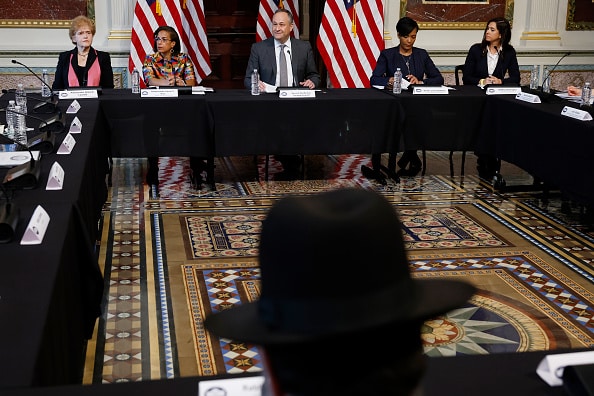
However, Jewish groups were upset that the doctrine didn’t formally utilize the International Holocaust Remembrance Alliance’s (IHRA) working definition of antisemitism. This definition notably says that specific targeting toward Israel; the Biden administration’s document does point out that antisemitism is blatant in situations when “Jewish students and educators are targeted for derision and exclusion on college campuses, often because of their real or perceived views about the State of Israel.” Later, the White House said it “embraced” the definition, which was adopted by the State Department.
The plan also faced criticism for its inclusion of the Council of American-Islamic Relations, which has been repeatedly accused of making antisemitic statements. CAIR was listed as a partner in showing how the Jewish community could protest its synagogues.
Trump has long said he was a staunch supporter of Israel, consistently bashing President Joe Biden and Harris for not doing enough to combat antisemitism.
The ex-president told Republican donors that he would combat antisemitism by bolstering law enforcement.
“As president, I will absolutely protect our Jewish citizens from these maniacs, lunatics, radical left thugs. Threats or crimes of violence against Jews will be prosecuted to the fullest extent of the law,” he said.
In 2019, Trump signed an executive order that made Title VI of the Civil Rights Act apply to antisemitism.
However, Trump faced immense backlash starting in March after saying that “any Jewish person that votes for Democrats hates their religion.” He has since repeated the claims on multiple occasions to the condemnation of both Democrat and Republican Jews.
Anti-Israel campus protests
Though the Biden administration has condemned antisemitic behavior and support for Hamas at campus protests, it has faced criticism from many Israel supporters who feel the administration should have acted more swiftly to have governors call in the National Guard. Additionally, the White House has been criticized by anti-Israel advocates for its continued support for Israel and for allowing colleges to dismantle protest encampments.
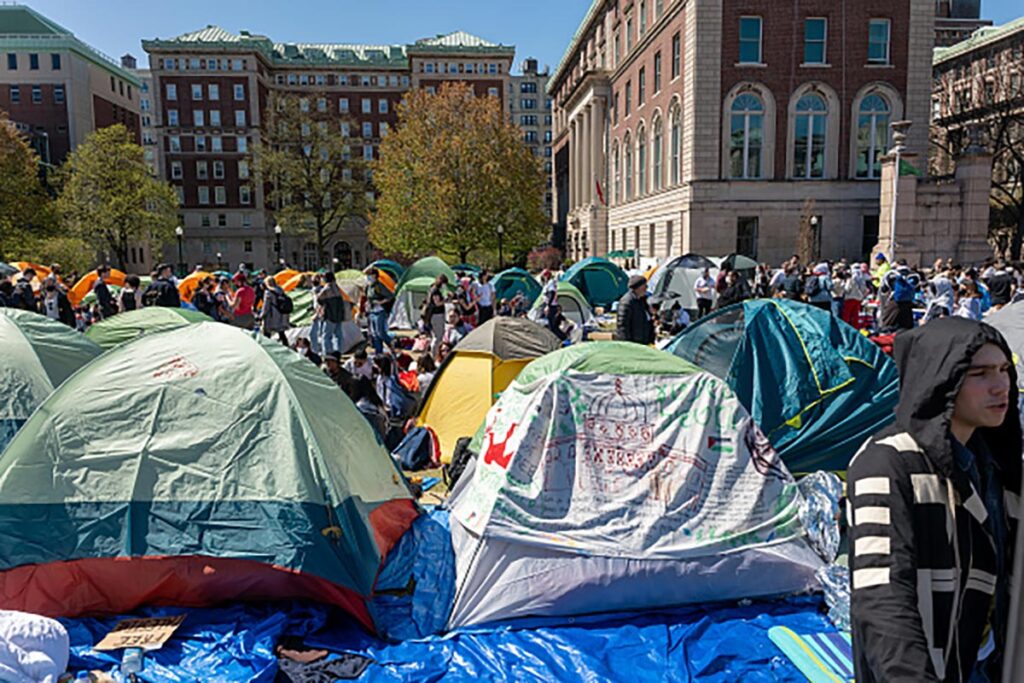
In July, Harris said that she supports freedom of protest and the anti-Israel activist’s passion to engage in political discourse. Still, she condemned some of the messaging and actions of the protesters.
“They are showing exactly what the human emotion should be, as a response to Gaza. There are things some of the protesters are saying that I absolutely reject, so I don’t mean to wholesale endorse their points. But we have to navigate it. I understand the emotion behind it,” Harris told the Nation.
Trump has taken a harder stand against student protesters, threatening to imprison and deport them if he was re-elected.
“One thing I do is, any student that protests, I throw them out of the country. You know, there are a lot of foreign students. As soon as they hear that, they’re going to behave,” the Republican nominee said, per The Washington Post.
After protesters at Columbia University, who Trump referred to as “radical-left lunatics,” were arrested for setting up an encampment and vandalizing and occupying a campus building, Trump praised the round-up of students as “a beautiful thing to watch.”
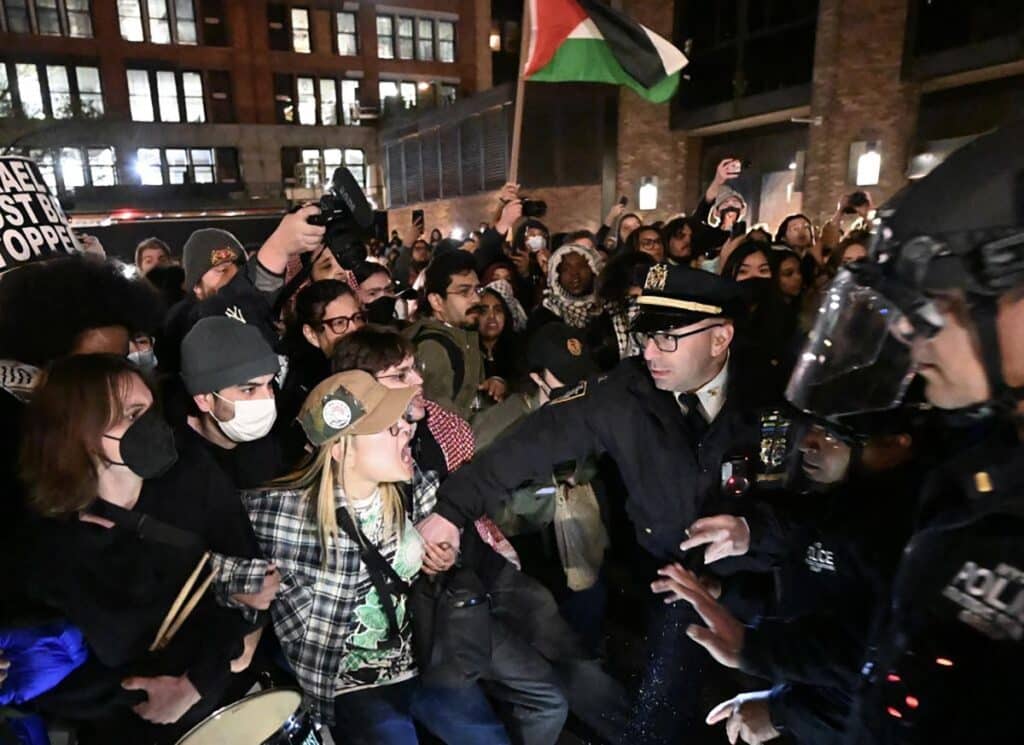
He urged university presidents to take a stronger stance against protesting on campus.
“Remove the encampments immediately. Vanquish the radicals, and take back our campuses for all of the normal students who want a safe place for which to learn,” Trump told a rally crowd in Wisconsin. “The radical extremists and far-left agitators are terrorizing college campuses, as you possibly noticed, and Biden’s nowhere to be found.”
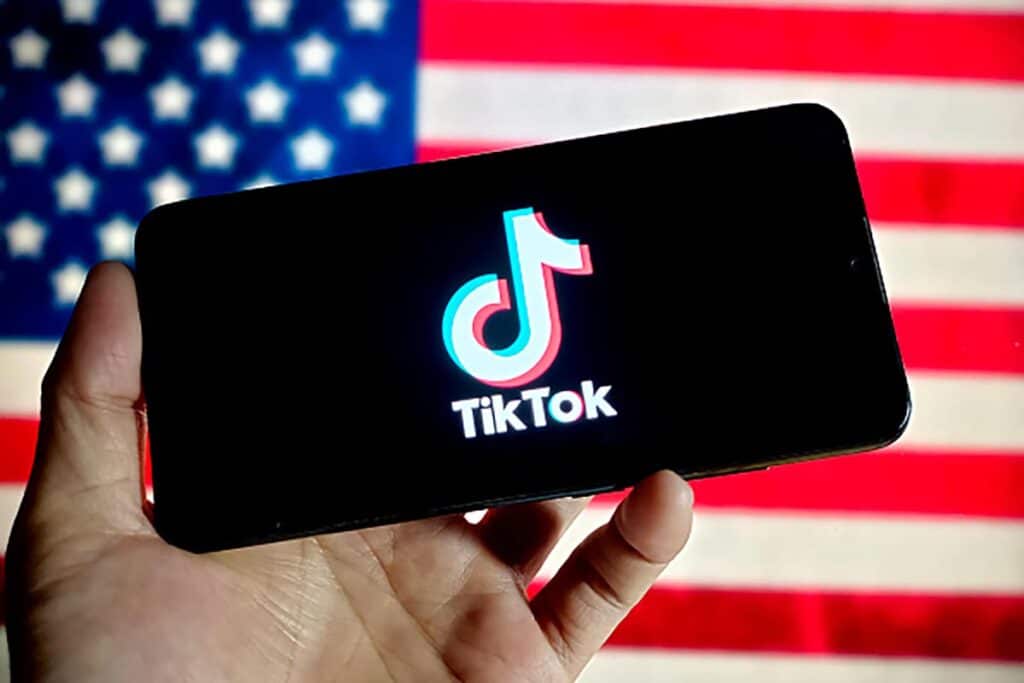
TikTok ban
Far-right and far-left content creators and influencers blamed the bill to force a sale or ban TikTok not on China or the potential security concerns, but on…the Jews.
Conspiracy theorists argued that the TikTok ban stems from the social media platform’s overwhelming support for Palestine. They believe that Jewish and pro-Israel groups convinced legislators to support the ban by threatening to withdraw funding, continuing the theory that Jews “control everything.”
Read more: What does Jewish Gen Z think of the potential TikTok ban?
While the Biden administration approved Congress’ bill to force a ban if TikTok wasn’t sold, Harris said that the administration’s goal is for the app to be sold by ByteDance rather than be taken off the app store.
“We do not intend to ban TikTok. That is not at all the goal or the purpose of this conversation. We need to deal with the owner, and we have national security concerns about the owner of TikTok, but we have no intention to ban TikTok,” the vice president said on ABC’s “This Week.”
“It’s an income generator for many people, what it does in terms of allowing people to share information in a free way, in a way that allows people to have discourse. It’s very important,” Harris added.
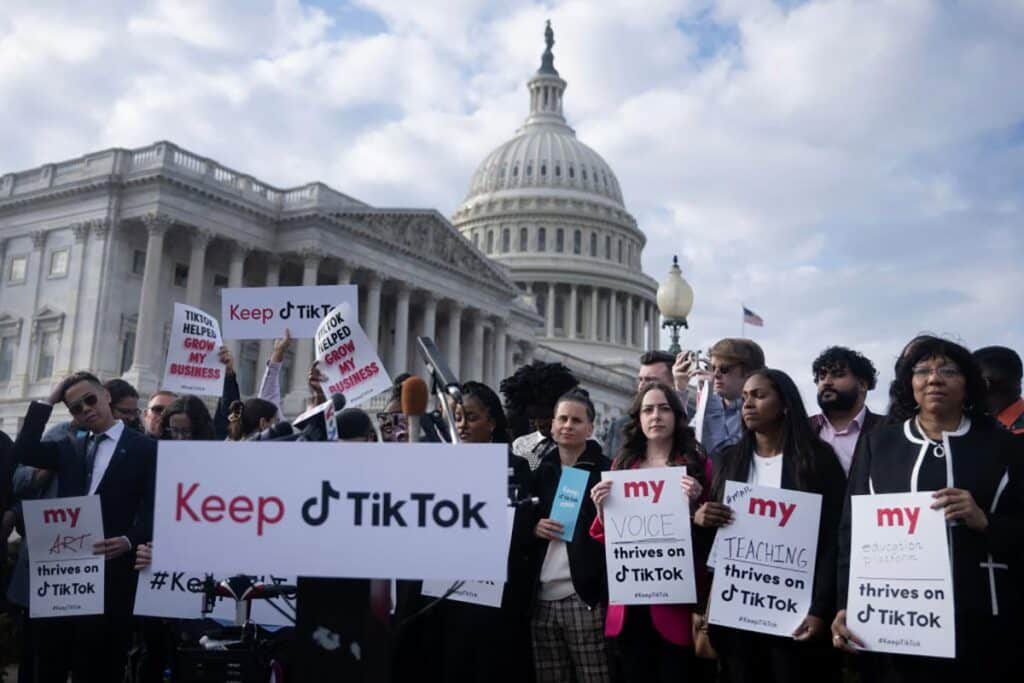
In 2020, Trump issued an executive order to ban TikTok, but it was shot down in court.
However, since then, he has reversed his position telling CNBC, “Frankly, there are a lot of people on TikTok that love it. There are a lot of young kids on TikTok who will go crazy without it.”
He added that he believes the app is a security risk, but doesn’t support a ban or forced sale because if TikTok was banned it would benefit Meta, which he has attacked since the 2020 election as “an enemy of the people.”
Both the Harris and Trump campaigns joined TikTok within the last two months.
Support for Israel in war, calls for a ceasefire
Throughout the Israel-Hamas war, Harris has supported Israel’s right to defend itself but also more publicly criticized the Israeli government’s handling of humanitarian efforts in Gaza.
In March, Harris became the first White House official to publicly call for an immediate ceasefire, although she clarified immediately after that she was referring to a temporary ceasefire mainly focused on getting humanitarian aid into Gaza and releasing hostages held by Hamas.

After meeting with Netanyahu in July, Harris stated that she would “not be silent” about the humanitarian situation in Gaza, stressing the need for a ceasefire to be reached immediately. She also stressed, however, that she has an “unwavering commitment to the existence of the state of Israel, to its security, and to the people of Israel.”
Trump has also been heavily critical of Netanyahu’s handling of the war against Hamas and has claimed that the Oct. 7th attack would never have happened if he was still president.
Trump has called on Israel to end the war quickly and urged Israel to “get on to peace,” although it was unclear if he meant a general peace plan or just a ceasefire.
Support for military aid
Trump is somewhat of an isolationist with an “America First” stance. During his presidency, he pulled out of several international agreements and bodies, including the Iran nuclear deal, UNESCO, the Paris Climate Agreement, and the Trans-Pacific Partnership. That approach has raised concerns that he could become more isolationist in terms of Israel too.
NEW
— Yashar Ali 🐘 (@yashar) July 26, 2024
Former President Trump greets Israeli Prime Minister Benjamin Netanyahu and his wife Sara at Mar-A-Lago.
Netanyahu, referring to his wife, says to Trump: “Brought you the best part.”
This visit comes after the two men have had a rocky and at times estranged relationship… pic.twitter.com/Ddlp5b7vUH
However, Trump has tended to be less isolationist when he’s convinced of a potential gain for the U.S. in foreign intervention which also does not affect political support for him back home. Throughout the campaign, he’s been vocal about wanting to seal a normalization deal between Israel and Saudi Arabia, and he’s pushed his support for military aid to Israel.
However, Trump has also said that Israel should not receive funding if it’s not going to be paid back. He said that all foreign aid should be structured as a loan with the U.S. able to demand repayment if there is insufficient support by the recipient. He added that he would “encourage” Russia to attack members of NATO that have not met their financial obligations.
“WE SHOULD NEVER GIVE MONEY ANYMORE WITHOUT THE HOPE OF A PAYBACK, OR WITHOUT“STRINGS” ATTACHED. THE UNITED STATES OF AMERICA SHOULD BE “STUPID” NO LONGER!” Trump posted on Truth Social in February after a bill was signed to give aid to both Israel and Ukraine..
Trump’s V.P. pick, JD Vance, is also an isolationist and opposed a foreign aid package intended for Ukraine and Israel this year, although Vance has also said he supports aid to Israel since he believes the U.S. gains more from that relationship than they gain from Ukraine.
Some analysts have raised concerns that Trump and Netanyahu’s tense relationship in recent years could negatively impact cooperation between the two countries, assuming Netanyahu is still prime minister under the next administration.
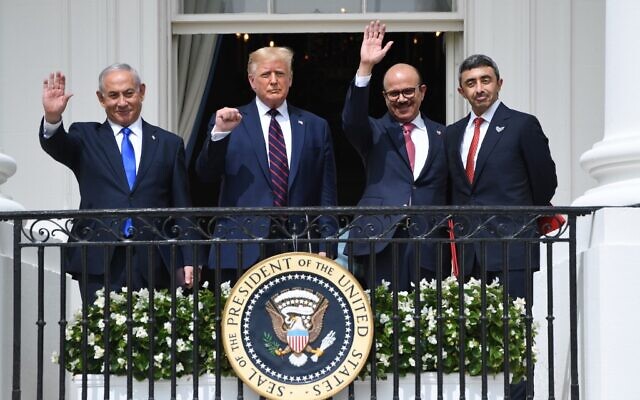
The two have been at odds since Netanyahu congratulated Biden on his electoral win in 2020, leading Trump to label him as disloyal. Trump has said publicly that he believes that there are other politicians in Israel who could do a better job than Netanyahu.
In an interview with Time magazine in April, Trump claimed that Netanyahu backed out of providing direct Israeli support for the assassination of Qassem Soleimani – the head of the Iranian Quds Force, which coordinates Iran’s proxies around the world — at the last moment in 2020.
Harris has insisted that she supports continuing military aid to Israel, although the Biden administration did delay some weapons shipments to Israel during the war.
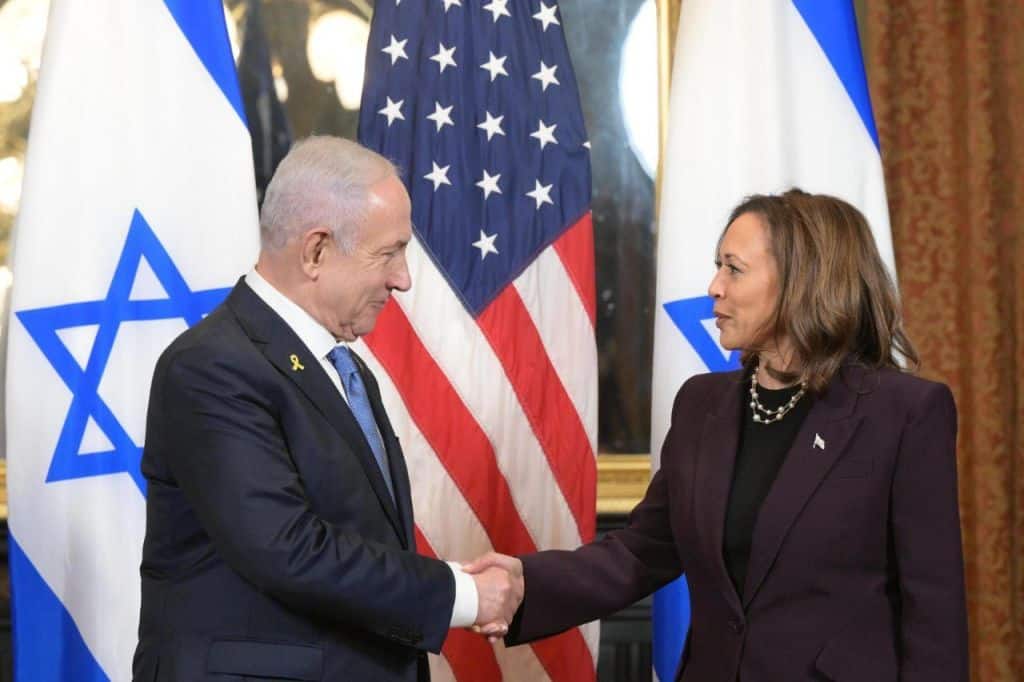
Members of the Uncommitted movement — which encourages boycotting the upcoming elections to protest the Biden administration’s handling of the war in Gaza — claimed recently that Harris had promised to meet with them to discuss their demand for an arms embargo against Israel.
The Harris campaign has denied the claims, with her national security advisor saying that Harris does not support an arms embargo against Israel and would “always ensure Israel is able to defend itself against Iran and Iran-backed terrorist groups.”
Support for a two-state solution
Trump has been vague about whether he supports the creation of an independent Palestinian state, saying in a debate, “I’d have to see.” He told Time that he supports a two-state solution less than he used to but added, “There may not be another idea.”
Trump’s peace plan was bashed by both Israeli settlers in the West Bank and by Palestinians for its stance that a Palestinian state would exist in the future by the former and the belief that it was too biased toward the Israelis by the latter.
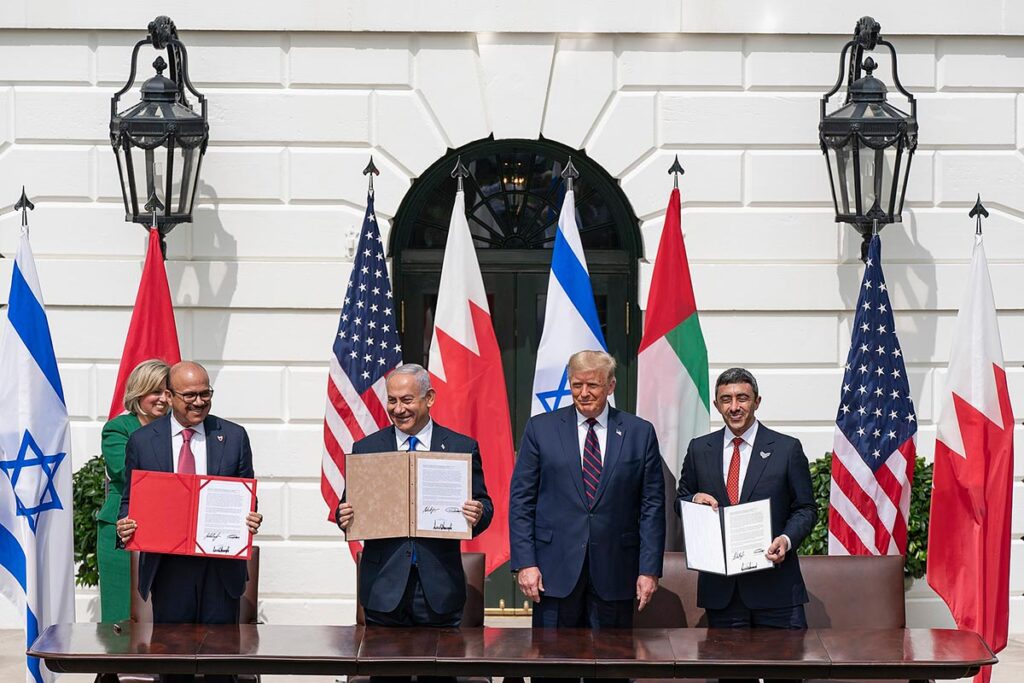
Israel would expand under the plan written by Trump’s son-in-law Jared Kushner, with the Palestinian state excluding the Jordan Valley and the West Bank settlements. The state would only exist if the U.S. and Israel believed that its conditions were met. Many critics said that the list of demands, which include total demilitarization, would never come to fruition.
The former president told the Israeli newspaper Israel Hayom in March that he would “take a look” at a proposal to recognize an Israeli annexation of the West Bank, although he didn’t say if he supported such a plan or not.
Meanwhile, Harris has been outspoken in her support for a two-state solution.
After her meeting with Netanyahu, Harris insisted that “a two-state solution is the only path that ensures Israel remains a secure, Jewish, and democratic state and one that ensures Palestinians can finally realize the freedom, security, and prosperity that they rightly deserve.”
Iranian nuclear deal
Trump withdrew from the JCPOA Iranian nuclear deal in 2018 but has expressed interest in negotiating a new deal under different terms.
Trump, in general, took a more hardline stance against Iran, ordering several strikes against Iranian forces in response to attacks by Iran-backed militias against U.S. forces in the Middle East. This policy culminated in the assassination of Soleimani in 2020.

Harris has expressed support for reaching a deal that would limit Iran’s nuclear program, but she’s also said she would like to see a stronger version of it that would cover ballistic missiles as well.
Harris opposed Trump’s withdrawal from the deal, saying in 2019 that the deal had been working before the U.S. withdrew.
Harris made statements in support of Iranian women protesting in 2022 against the regime in Iran after the killing of Mahsa Amini, a Kurdish-Iranian woman brutally beaten by officers in Tehran for allegedly wearing her hijab incorrectly. Harris supported a call to remove Iran from the UN Commission on the Status of Women.
Some concerns have been raised concerning Phillip Gordon, Harris’s national security advisor, and possible connections he may have to Iranian influence networks.
Gordon co-authored several opinion pieces with Ariane Tabatabai, who was alleged to have ties to the Iran Expert Initiative run by the Islamic regime in Iran. According to an investigation by Semafor and Iran International, Tabatabai would consult with Iranian officials through email before important meetings.
Gordon also spoke at events organized by the National Iranian American Council (NIAC), an organization alleged to have been founded to raise support for the Islamic regime in Iran, and praised the organization.
Originally Published Aug 20, 2024 03:03PM EDT